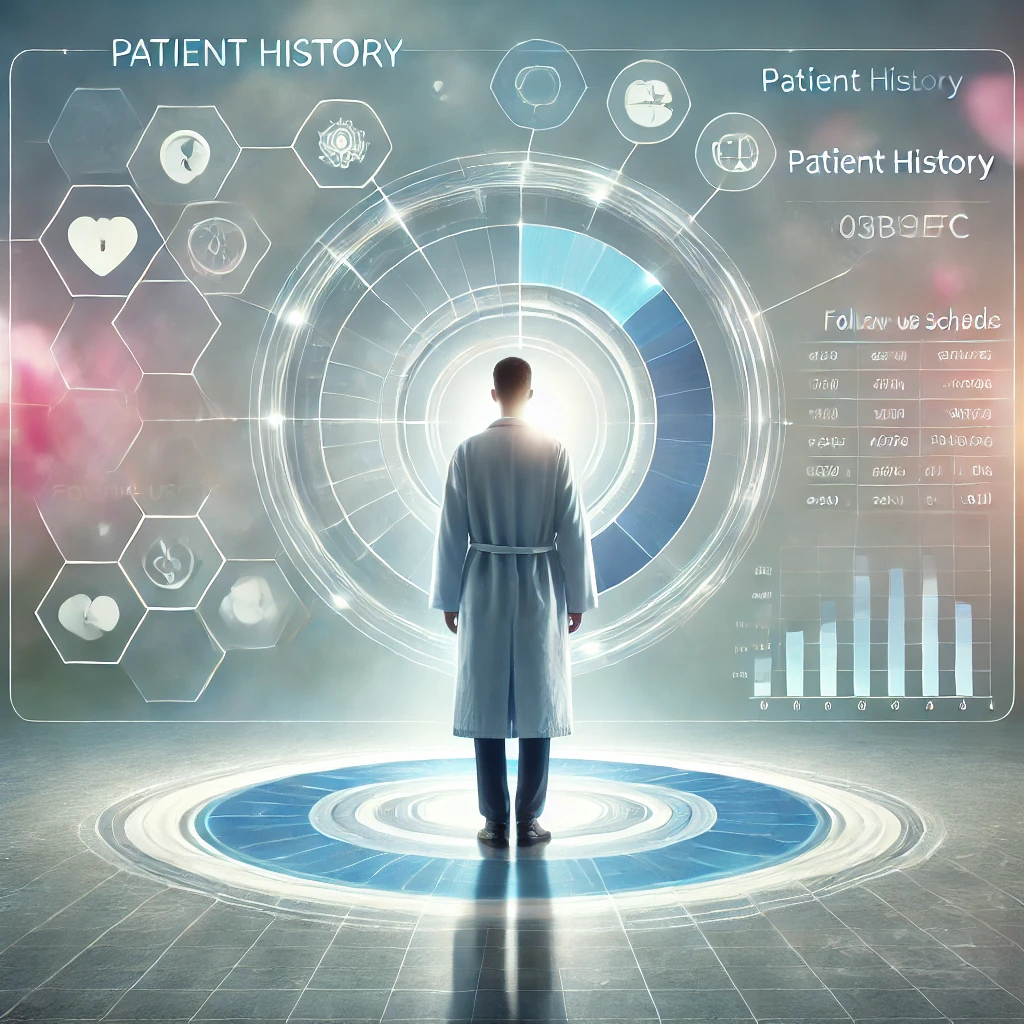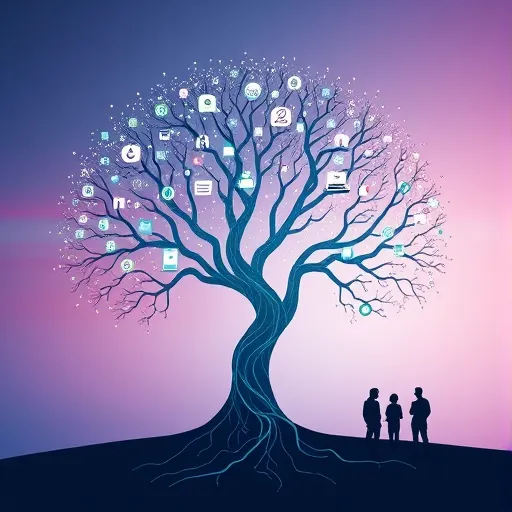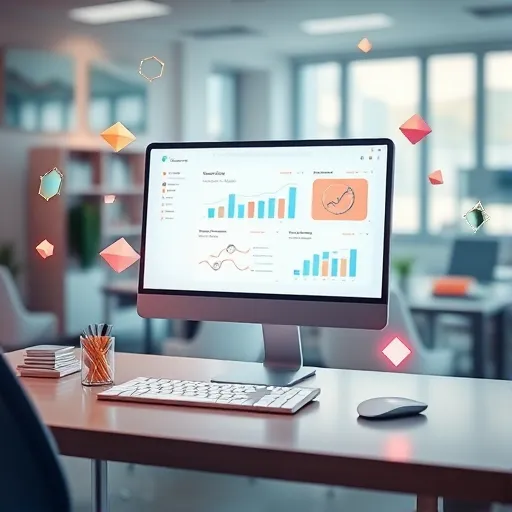
CRM for Addiction Treatment Facilities
Table of Contents
crm for addiction treatment facilities
Key Takeaways
- Centralized Data for Better Patient Care
CRM systems enable addiction treatment facilities to consolidate patient data, streamlining workflows and ensuring efficient patient management. Centralized access reduces delays, avoids errors, and allows staff to focus on delivering personalized care and fostering engagement. - Enhanced Marketing with Automation
Marketing automation tools revolutionize outreach by delivering targeted, personalized campaigns based on patient behavior. This approach drives higher engagement, improves ROI, and ensures communication reaches the right audience at the right time. - Improved Patient Retention and Engagement
Through tools like automated follow-ups, personalized messages, and engagement analytics, addiction treatment centers can build trust and foster long-term relationships with patients. These strategies directly improve retention and satisfaction rates. - Scalable Solutions for Operational Efficiency
By automating repetitive tasks like appointment reminders and campaign management, CRM and marketing automation reduce administrative burdens. Facilities report time savings of up to 30%, allowing staff to focus on patient care and scaling operations effectively.
Introduction
How often do addiction treatment facilities lose potential patients due to inefficient workflows and ineffective communication? In a world where every second counts, fragmented processes can mean the difference between someone seeking help or falling through the cracks. Operational inefficiencies, like disorganized patient management systems and outdated marketing efforts, create unnecessary roadblocks. Marketing challenges, such as generic messaging and a lack of personalized outreach, further hinder a facility’s ability to connect with those in need.
CRM and marketing automation have redefined how addiction treatment centers connect with patients and optimize their operations. These tools don’t just improve processes—they revolutionize patient care and marketing effectiveness. Addiction treatment is uniquely sensitive, requiring systems that balance efficiency with empathy, and this is where CRM (Customer Relationship Management) and marketing automation excel.
Common Challenges Addiction Treatment Centers Face
- Fragmented workflows: Patient information scattered across systems leads to delays and errors.
- Limited engagement: Lack of personalized communication can make potential patients feel like just another number.
- Ineffective marketing: Facilities struggle to track ROI and target the right audience.
Modernizing these processes with CRM tools and marketing automation is no longer optional. The urgency lies in staying relevant while delivering better care.
Understanding CRM and Marketing Automation in Addiction Treatment
What Are CRM and Marketing Automation?
CRM (Customer Relationship Management) serves as the nerve center for managing patient interactions. Imagine a tool that not only keeps track of every phone call, appointment, and inquiry but also integrates seamlessly into daily operations. This system allows staff to spend less time chasing paperwork and more time focusing on patient care.
Marketing automation, on the other hand, ensures outreach efforts are timely, targeted, and impactful. Whether it’s sending a follow-up email to a potential patient or running a campaign for families searching for support, automation takes the guesswork out of engagement. Together, these tools build bridges where there were once gaps.
How Do These Tools Work Together?
- CRM supports workflows by centralizing patient data, making it accessible to all team members.
- Automation streamlines engagement, ensuring the right message reaches the right person at the right time.
- Both work in tandem to improve operational efficiency and elevate the patient experience.
Core Features of CRM and Marketing Automation
- Patient tracking and scheduling.
- Automated messaging and reminders.
- Engagement analytics to measure campaign success.
Consider this: A center implementing CRM with automation can see up to a 40% improvement in patient retention, according to HubSpot data. These tools don’t just simplify tasks—they elevate outcomes.
Importance of CRM and Marketing Automation in Enhancing Patient Care
Better Data, Better Decisions
How often does a lack of accurate patient data lead to delays in care? CRM ensures that every detail, from a patient’s intake information to their follow-up schedule, is just a click away. This centralized access empowers staff to make informed decisions quickly, avoiding gaps in care.
Personalized Patient Outreach
Automation tools go beyond sending generic reminders. They craft messages tailored to the recipient’s needs, ensuring patients and their families feel seen and understood. For example, an automated follow-up message after an initial consultation can include resources specific to the patient’s concerns, building trust and fostering engagement.
| Benefit | Example | Impact |
| Centralized patient data | One-click access to patient history | Faster and more accurate care |
| Tailored communication | Personalized emails and SMS reminders | Improved patient engagement |
| Analytics-driven insights | Campaign performance metrics | Better resource allocation |
Improving the Patient Journey
Picture this: A patient reaches out to a center, and within minutes, they receive a follow-up email detailing next steps, with a compassionate tone that acknowledges their courage. This is not only efficient—it’s transformative.
How well is your facility adapting to the modern demands of patient care and engagement? CRM and marketing automation aren’t just tools—they’re lifelines for addiction treatment centers looking to make meaningful, measurable improvements. Implementing these solutions today could save lives tomorrow. The time to act is now.

Fundamentals of CRM and Marketing Automation
Why do addiction treatment centers struggle with patient engagement and operational inefficiencies? Often, the problem lies in disjointed systems and manual processes that consume time and limit scalability. Enter CRM (Customer Relationship Management) and marketing automation—two essential tools that modernize healthcare operations while enhancing patient care. These systems aren't just for Fortune 500 companies; they're transforming how facilities of all sizes operate.
CRM centralizes patient data, ensuring every interaction is accessible and actionable. Marketing automation complements this by delivering timely and personalized outreach, automating repetitive tasks like appointment reminders or follow-up emails. Together, these tools create a seamless ecosystem where efficiency meets empathy.
Definitions and Key Features
What Is CRM, and Why Does It Matter?
CRM is the digital backbone of patient management. It consolidates data like appointment histories, communication logs, and preferences into a single dashboard. Imagine instantly pulling up a patient’s entire history without shuffling through spreadsheets or files.
Key CRM features include:
- Patient tracking: Monitor interactions from initial inquiries to post-treatment follow-ups.
- Automated scheduling: Reduce administrative burden by streamlining bookings.
- Reporting and insights: Track metrics like patient retention rates and engagement trends.
What About Marketing Automation?
Marketing automation transforms outreach into a science. Gone are the days of one-size-fits-all campaigns. These tools enable facilities to segment audiences, personalize communications, and automate workflows.
Core functionalities include:
- Email campaigns: Deliver targeted messages based on patient behavior.
- Lead nurturing: Guide potential patients through their decision-making process.
- Performance analytics: Measure ROI and optimize future campaigns.
Tools That Work for Addiction Treatment Facilities
Platforms like HubSpot and Zoho excel in healthcare settings, offering integrations tailored to patient engagement and marketing needs. They’re user-friendly and scalable, ensuring they grow alongside your facility.
| Feature | CRM | Marketing Automation |
| Purpose | Centralize patient data | Streamline outreach and engagement |
| Example Use Case | Track follow-ups for discharged patients | Send automated email campaigns to leads |
Why CRM and Marketing Automation Matter for Addiction Treatment Centers
Streamlining Operations and Reducing Staff Burden
Managing a facility without CRM is like running a marathon in flip-flops—it’s possible but unnecessarily difficult. CRM systems reduce redundancies, allowing staff to focus on what matters: patient care. Automating routine tasks like appointment confirmations not only saves time but also reduces errors.
Enhancing Marketing Campaigns and Targeting
Marketing automation transforms data into actionable insights. Are your campaigns reaching the right audience? Automation tools analyze engagement metrics, showing exactly where improvements are needed. They also allow for A/B testing, ensuring your messaging resonates with potential patients.
Improving Patient Engagement and Retention
Patients don’t want to feel like numbers; they want to feel understood. By leveraging CRM and automation, facilities can personalize communication, making patients feel valued at every step of their journey.
| Challenge | Pre-Implementation | Post-Implementation |
| Data Management | Scattered across spreadsheets | Centralized and easily accessible |
| Patient Follow-Ups | Manual and inconsistent | Automated and reliable |
| Campaign ROI Tracking | Limited visibility | Real-time analytics and actionable insights |
Final Thought
How much more could your facility achieve with systems that work as hard as your staff? CRM and marketing automation aren’t just tools—they’re catalysts for transformation. The future of addiction treatment isn’t just about providing care; it’s about optimizing how that care is delivered.

Benefits of Implementing CRM and Marketing Automation
Can outdated systems and inefficient workflows hold your addiction treatment facility back? The answer is a resounding yes. Facilities often face challenges like fragmented patient data, ineffective marketing campaigns, and time-consuming administrative tasks. CRM and marketing automation not only solve these issues but also transform how facilities operate, engage patients, and deliver care.
CRM systems improve patient engagement by consolidating data, ensuring that no opportunity for meaningful interaction is missed. Meanwhile, marketing automation optimizes communication strategies, making outreach more personal and impactful. Together, these tools create measurable results, from streamlined operations to improved patient outcomes.
Enhancing Patient Management and Engagement
Better Patient Management Through Centralized Data
Is your facility drowning in spreadsheets and disjointed systems? CRM systems bring order to the chaos by centralizing patient data. This means staff can access a patient’s history, preferences, and interactions with just a few clicks. Whether it’s tracking follow-ups or scheduling appointments, CRMs ensure every detail is accounted for.
Key features of CRM for patient management:
- Patient tracking: Provides a 360-degree view of patient interactions.
- Actionable insights: Identifies trends to improve engagement strategies.
- Automation: Reduces repetitive administrative work.
Personalized Outreach Made Simple
Marketing automation complements CRM by ensuring every patient feels seen. Automation enables personalized communication, such as tailored appointment reminders or follow-up emails addressing specific concerns. These touches foster trust and build lasting relationships.
Core tools enhancing patient engagement include:
- Automated email campaigns.
- Personalized reminders and messages.
- Engagement analytics for continuous improvement.
Imagine a patient receiving a well-timed message acknowledging their progress. This isn’t just good marketing—it’s impactful care.
Streamlining Operations and Improving Efficiency
Cutting Through the Noise of Administrative Tasks
How much time does your staff spend on repetitive tasks? CRM systems take on the administrative burden by automating processes like patient scheduling, billing, and reporting. This allows your team to focus on what they do best—providing exceptional care.
| Task | Manual Process | Automated Process |
| Appointment Scheduling | Phone calls, manual logs | Automated reminders via CRM |
| Patient Follow-Ups | Staff-managed reminders | Pre-scheduled email campaigns |
| Reporting | Spreadsheet analysis | Instant analytics dashboards |
Marketing Automation for Workflow Optimization
Marketing automation tools streamline campaign management by handling tasks like audience segmentation and performance tracking. Say goodbye to manual social media scheduling or clunky email lists—automation takes care of it all.
Operational benefits of marketing automation:
- Reduces manual workload.
- Enables scalable campaigns.
- Provides real-time analytics for adjustments.
Facilities adopting these tools often report up to 30% time savings on routine tasks, allowing staff to focus on direct patient care.
Boosting Marketing Effectiveness
Reaching the Right Audience at the Right Time
Are your marketing campaigns hitting the mark? Marketing automation enhances targeting precision by using data-driven insights from CRM systems. These tools ensure campaigns are not just seen but also resonate with the intended audience.
Key tasks improved by marketing automation include:
- Campaign personalization based on patient behavior.
- Audience segmentation to reach specific groups.
- Tracking metrics like email open rates and conversion percentages.
Data-Driven Campaign Optimization
CRM analytics play a vital role in measuring the success of marketing efforts. Facilities can see what’s working and pivot quickly when something isn’t. This isn’t guesswork—it’s actionable intelligence.
For example: A facility using marketing automation can A/B test two versions of an outreach campaign. The result? Real-time adjustments that maximize ROI and patient acquisition.
Success Story: One treatment center saw a 25% increase in inquiries after implementing automated marketing campaigns. These tools don’t just streamline processes—they deliver tangible results.
How far could your facility go with the right tools? CRM and marketing automation aren’t just for solving operational headaches; they’re catalysts for growth and innovation. From improving patient engagement to optimizing marketing campaigns, these tools empower addiction treatment facilities to do more—and do it better.

Key Tools and Software for Addiction Treatment Facilities
How do successful addiction treatment centers manage to streamline operations, improve patient care, and grow their outreach simultaneously? The answer lies in leveraging the right CRM and marketing automation tools. These platforms act as digital assistants, organizing patient data, automating repetitive tasks, and making communication more effective. For facilities of any size, choosing the right tools isn’t just a convenience—it’s a strategic necessity.
CRM tools for healthcare are specifically designed to manage patient interactions, track their journey, and ensure timely follow-ups. Meanwhile, marketing automation platforms enhance outreach by delivering personalized, data-driven campaigns that engage the right audience at the right time. Together, these tools offer a powerful solution to modern operational challenges.
Overview of Popular CRM Platforms (e.g., HubSpot, Salesforce, Zoho)
HubSpot: Customization and Analytics for Mid-Sized Facilities
HubSpot stands out with its customizable templates, intuitive interface, and robust analytics. Facilities can track patient inquiries, measure campaign performance, and automate follow-ups seamlessly. For centers prioritizing patient engagement, HubSpot provides user-friendly tools that scale with growth.
Salesforce: Scalability and Advanced Integrations
Salesforce is the go-to choice for facilities aiming for long-term scalability. Its advanced integrations allow facilities to connect with Electronic Health Records (EHRs) and third-party platforms, ensuring a comprehensive patient view. It’s perfect for large facilities with complex operational needs but may require additional resources for setup and training.
Zoho: Affordable and Feature-Rich for Small Centers
Zoho combines affordability with functionality, making it ideal for smaller addiction treatment facilities. Its CRM offers email automation, patient tracking, and campaign insights at a fraction of the cost of larger platforms. Think of it as a “starter pack” for centers exploring digital tools.
| Platform | Key Features | Pricing | Best For |
| HubSpot | Custom templates, campaign analytics | Free to premium tiers | Mid-sized facilities |
| Salesforce | Scalability, advanced integrations | Premium pricing tiers | Large, complex organizations |
| Zoho | Affordable, automation capabilities | Low-cost plans available | Small to mid-sized facilities |
Ready to find your match? Most platforms offer free trials—an easy way to explore which system fits your facility’s needs.
Selecting the Right CRM and Marketing Automation Tools
What to Look For in CRM and Automation Tools
Not every tool is created equal, and choosing the right one depends on your facility’s size, goals, and budget. Facilities with high patient volumes may prioritize scalability and integration, while smaller centers might focus on affordability and user-friendliness.
Key criteria for selection include:
- Cost and Budget: Are the platform’s features worth the investment?
- Ease of Use: Can staff quickly adapt to the system?
- Integration: Does the tool connect with your existing systems?
- Scalability: Will the platform grow with your facility’s needs?
- Support: Does the provider offer reliable customer service?
Steps to Evaluate and Choose the Best Tools
- Assess Needs: Identify operational pain points, such as scheduling inefficiencies or limited patient tracking.
- Research Options: Explore platforms like HubSpot, Salesforce, and Zoho, noting their strengths and limitations.
- Request Demos: Take advantage of free trials and live demos to evaluate user experience.
- Gather Feedback: Involve staff who will use the system daily to ensure the tool meets their needs.
| Criteria | Why It Matters |
| Cost | Ensures alignment with the facility’s budget |
| Integration | Facilitates seamless operations |
| User-Friendliness | Reduces staff training time |
| Scalability | Supports long-term growth |
Making Informed Decisions
The right tool isn’t just a purchase—it’s an investment in your facility’s future. Consider what success looks like for your center. Is it smoother operations? Higher patient retention? Improved campaign ROI? Align your tool choice with these objectives.
How much time and effort could your facility save with the right tools? CRM and marketing automation are no longer optional; they’re essential for staying competitive and delivering top-tier care. Selecting the right tools ensures your staff has more time to focus on what truly matters: helping patients on their recovery journey.

Implementation Strategies
Why do so many facilities struggle to implement CRM and marketing automation effectively? Without a clear plan, even the best tools can fail to deliver results. For addiction treatment centers, strategic implementation isn’t just a good idea—it’s a necessity. From assessing facility needs to integrating tools seamlessly, successful adoption hinges on preparation, collaboration, and careful execution.
Tailored strategies ensure these tools align with the unique demands of addiction treatment facilities. Whether it’s addressing patient management gaps or streamlining outreach, a structured approach minimizes disruptions and maximizes impact. Let’s explore how your facility can implement these tools with confidence.
Best Practices for Integrating CRM and Marketing Automation
Aligning Tools with Facility Goals
Does your current system meet your long-term objectives? Integration starts with clarity. Define your facility’s goals—whether it’s improving patient retention, streamlining workflows, or increasing marketing ROI—and ensure that selected tools align with these priorities.
Actionable Steps for Seamless Integration
- Pilot Testing: Start with a small-scale rollout to identify potential issues before full implementation.
- Cross-Functional Involvement: Involve staff from different departments to ensure the tools meet diverse needs.
- Data Accuracy: Clean and organize patient data before migration to avoid errors and ensure reliable insights.
- System Audits: Regularly evaluate tool performance to ensure continued alignment with goals.
| Best Practice | Why It Matters |
| Pilot Testing | Identifies risks and areas for improvement |
| Cross-Functional Teams | Ensures tools meet both operational and marketing needs |
| Data Cleaning Before Migration | Prevents errors and enhances usability |
| Regular System Audits | Maintains effectiveness and alignment with goals |
Case Study: One addiction treatment facility implemented CRM tools with a phased approach. After pilot testing, they saw a 25% improvement in patient follow-ups within six months.
Training Staff and Ensuring Adoption
Overcoming Resistance Through Effective Training
What’s the biggest barrier to adopting new tools? It’s not the technology—it’s the people. Staff members who feel overwhelmed or excluded from the process are less likely to embrace new systems. Training is the bridge that connects technology with its users.
Key Components of an Effective Training Program
- Initial Workshops: Provide hands-on sessions tailored to staff roles, ensuring everyone understands their responsibilities.
- Role-Based Training: Customize training modules for administrative, marketing, and patient care teams.
- Ongoing Support: Offer regular check-ins, help desk access, and advanced workshops to keep staff confident.
| Training Component | Benefit |
| Initial Workshops | Builds foundational understanding |
| Role-Based Training | Aligns training with specific job functions |
| Ongoing Support | Maintains confidence and addresses challenges |
Leadership’s Role in Adoption
Leaders set the tone for adoption. Encourage managers to advocate for the tools, celebrate early successes, and foster a culture of continuous learning. Staff who feel supported and valued are more likely to embrace change.
How smoothly your facility implements CRM and marketing automation can determine their success. With clear goals, actionable steps, and empowered staff, these tools can transform your operations. Start small, plan strategically, and invest in training—it’s a formula that works every time.

Marketing Applications in Addiction Treatment
Can your addiction treatment facility afford to overlook smarter marketing strategies? In a competitive landscape, standing out isn’t just about being good—it’s about being effective. CRM and marketing automation are revolutionizing how facilities engage potential patients, drive inquiries, and build trust through personalized outreach. These tools transform traditional marketing methods, making campaigns more streamlined and impactful.
The secret lies in leveraging automation. Campaigns become tailored to specific audiences, outreach becomes timely, and every interaction is tracked for better results. Let’s explore how your facility can harness these tools to improve patient engagement and marketing ROI.
Automating Campaigns and Lead Management
Simplifying Campaign Execution
Running a marketing campaign can feel like juggling too many balls at once—emails, social media ads, landing pages, and analytics. Automation tools take the stress out of the process, allowing facilities to focus on crafting meaningful messages instead of micromanaging execution. Campaigns can be pre-scheduled, segmented, and optimized, ensuring the right message reaches the right audience.
Common automated campaigns include:
- Email sequences: Nurture leads with follow-up messages that align with their stage in the decision process.
- Social media ads: Target specific demographics and monitor performance effortlessly.
- Patient reminders: Automate notifications for appointments or educational webinars.
Enhancing Lead Management
Do you know which potential patients are ready to convert? CRM tools integrate with marketing platforms to track inquiries, score leads, and assign follow-up actions. Lead management becomes seamless, ensuring no opportunity is missed. With automation, staff can prioritize high-quality leads while maintaining consistent communication with others.
| Feature | Benefit | Example |
| Email Automation | Saves time on follow-ups | Automated sequences for inquiries |
| Lead Scoring | Identifies high-priority leads | Assigning calls to top prospects |
| Campaign Analytics | Measures success in real time | Adjusting ad spend mid-campaign |
Consider this: An addiction treatment facility that automated its lead management process saw a 40% increase in qualified leads within three months.
Personalized Communication for Patient Outreach
Building Trust Through Tailored Messaging
Addiction treatment is deeply personal, and patients need to feel understood. Generic outreach doesn’t work—it lacks the empathy and relevance patients expect. CRM tools enable facilities to create personalized communication strategies that resonate with patients on a human level. From acknowledging their unique challenges to offering timely resources, personalization fosters trust and engagement.
Why does personalization matter? It shows patients that their needs are a priority, not just another name in a database.
Using Automation to Segment and Tailor Outreach
Automation tools allow facilities to segment their audience based on behavior, demographics, or inquiry type. For example, potential patients who’ve attended a webinar may receive follow-up resources, while those researching specific treatments are offered tailored solutions.
Steps to personalize outreach:
- Segment Audiences: Group contacts by shared characteristics (e.g., location, stage in recovery).
- Craft Tailored Messages: Create content that addresses specific needs or questions.
- Deliver Timely Content: Schedule messages when they’re most likely to engage recipients.
- Measure Results: Use CRM analytics to refine messaging over time.
Measuring the Impact of Personalization
CRM analytics track metrics like open rates, click-through rates, and conversions, providing insight into what works. Facilities can adjust campaigns in real time, ensuring the highest engagement possible. Data-driven personalization isn’t just effective—it’s essential.
Are your marketing efforts falling short of their potential? Automation and CRM tools bring clarity, efficiency, and empathy to addiction treatment marketing. From automating campaigns to crafting personalized messages, these tools ensure that every effort counts. It’s not just about reaching more patients—it’s about reaching them in a way that builds trust and inspires action.

Measuring Success
How do you measure success? It’s a simple question, but for addiction treatment facilities leveraging CRM and marketing automation, the answer is more nuanced. Success isn’t just about implementing tools—it’s about achieving measurable outcomes that drive both patient engagement and operational efficiency. From tracking performance metrics to analyzing ROI, using data-driven strategies ensures facilities stay competitive and impactful.
Key Performance Indicators (KPIs) to Track
Understanding KPIs in Addiction Treatment Marketing
Every effective strategy starts with knowing what to measure. KPIs provide the roadmap, showing whether your efforts are driving patient engagement and operational success. Key indicators for addiction treatment facilities include:
- Lead Conversion Rates: How many inquiries turn into admissions?
- Patient Retention Rates: Are patients staying engaged with your programs?
- Marketing Campaign Success: Metrics like email open rates, click-through rates, and appointment bookings.
Applying KPIs for Continuous Improvement
KPIs aren’t static—they evolve with your goals. Facilities should regularly analyze these metrics to refine strategies and address weaknesses. For example, if open rates are low, it’s time to revisit subject lines or personalization tactics.
| KPI | Purpose | Example Insight |
| Lead Conversion Rates | Measures marketing success | Identifying campaigns with high ROI |
| Retention Rates | Tracks patient satisfaction | Gauging long-term program effectiveness |
| Email Open Rates | Evaluates engagement effectiveness | Refining subject line strategies |
Are you tracking the right KPIs? The right metrics don’t just inform—they transform your approach.
Evaluating Return on Investment (ROI)
The Financial Impact of CRM and Marketing Automation
When investing in tools like CRM and marketing automation, understanding ROI is critical. What’s the financial impact of these tools on your facility? ROI calculations reveal whether your investments are improving efficiency and profitability.
Steps to Calculate ROI
- Identify Costs: Include software, implementation, and training expenses.
- Measure Returns: Consider increased patient acquisitions, time saved, and reduced marketing spend.
- Calculate ROI: Use the formula [(Total Returns – Investment) / Investment] × 100 to determine percentage gains.
| Investment | Returns | Net ROI (%) |
| $10,000 | $25,000 | 150% |
| $15,000 | $40,000 | 166% |
Facilities using automation often see a 40-50% reduction in administrative hours, directly boosting ROI by reallocating staff resources to patient care.
Tools for Performance Analysis
Choosing the Right Analytics Tools
The right tools are essential for tracking and analyzing performance. Platforms like Google Analytics, HubSpot, and Salesforce offer robust features tailored to addiction treatment marketing. But which is best for your facility?
| Tool | Key Features | Best For |
| Google Analytics | Website traffic insights | Facilities with strong online presence |
| HubSpot | CRM with campaign tracking | Comprehensive inbound marketing |
| Salesforce | Advanced reporting and integrations | Large-scale facilities |
Leveraging Analytics for Strategic Decisions
Analytics tools provide actionable insights. From identifying the most successful campaigns to optimizing patient outreach, these platforms simplify decision-making. For example, tracking patient inquiries by channel helps allocate marketing budgets more effectively.
Can your facility afford to guess? Data-driven insights remove uncertainty, allowing you to act confidently.
Success isn’t an accident—it’s a result of deliberate tracking, analysis, and refinement. By understanding KPIs, calculating ROI, and leveraging powerful analytics tools, addiction treatment facilities can transform marketing efforts into measurable victories. What’s your next metric for success?

Conclusion
What opportunities are you missing without CRM and marketing automation? It’s a question that invites reflection—and action. Addiction treatment facilities operate in a complex environment that demands efficiency, personalized care, and effective outreach. CRM and marketing automation aren’t just tools; they are transformative solutions addressing challenges from patient engagement to operational workflows.
Recap of Benefits and Importance
Overcoming Challenges with Smart Solutions
CRM and marketing automation tools provide practical solutions to pressing challenges. From fragmented workflows to low patient retention, these tools address the unique needs of addiction treatment centers. CRM features centralize patient data, automate repetitive tasks, and simplify communication workflows. Marketing automation complements these efforts by enhancing campaign personalization and outreach.
A Strategic Edge for Facilities
Incorporating these tools positions facilities as leaders in their field. Better patient retention, smarter campaigns, and actionable insights all translate into measurable improvements. For instance, automated outreach campaigns have been shown to increase response rates by as much as 30%, directly impacting patient acquisition and satisfaction.
| Benefit | Impact |
| Improved Retention | Builds trust and long-term care |
| Streamlined Workflows | Reduces staff burden |
| Personalized Campaigns | Enhances patient engagement |
Imagine the difference these tools could make in your facility.
Encouragement to Adopt CRM and Marketing Automation in Addiction Treatment Facilities
Taking the First Steps
Adopting CRM and marketing automation begins with understanding your facility’s unique needs. Start small—evaluate your current workflows, identify gaps, and prioritize areas for improvement. Involve key stakeholders early to ensure buy-in and develop a roadmap for implementation.
Inspiration from Success
Facilities that have embraced these technologies report significant improvements. For example, a mid-sized rehab clinic implemented a CRM and saw a 25% increase in patient intake within six months. Automation further streamlined their processes, reducing staff hours spent on administrative tasks by 40%.
| Steps to Begin | Action |
| Identify Needs | Evaluate current challenges |
| Research Tools | Compare features and pricing |
| Develop a Plan | Involve stakeholders |
| Pilot Implementation | Test on a smaller scale |
The Future Awaits
Why wait to transform your facility’s operations and patient care? Start exploring the tools and strategies that align with your goals today. With CRM and marketing automation, you’re not just improving efficiency—you’re building a sustainable foundation for growth and patient satisfaction.
Final Thought
CRM and marketing automation aren’t just enhancements—they are game changers for addiction treatment facilities. Whether you’re aiming to improve patient retention, streamline workflows, or optimize marketing campaigns, these tools provide the data-driven foundation you need to thrive. The question is, are you ready to unlock their potential?
Questions You Might Ponder
How do facilities measure the long-term impact of CRM and marketing automation beyond immediate metrics like ROI?
Long-term impact can be measured through trends in patient retention, staff satisfaction, and growth in patient volume over several years. By tracking ongoing engagement metrics, analyzing shifts in operational efficiency, and correlating these with financial outcomes, facilities can gauge sustainability. Regular audits and benchmarking against industry standards also provide insight into whether the tools are driving meaningful and enduring change.
What steps should facilities take to ensure data privacy and compliance when implementing CRM systems?
Data privacy requires adhering to laws like HIPAA. Facilities must work with CRM providers that offer encryption, secure servers, and audit trails. Staff training is crucial to prevent breaches caused by human error. Regular reviews of access permissions, along with compliance audits, ensure systems meet regulatory requirements while protecting patient trust.
What are some common pitfalls during CRM and marketing automation implementation, and how can they be avoided?
Common pitfalls include unclear goals, lack of staff training, and underestimating data migration challenges. These issues can be avoided by conducting a thorough needs assessment, defining measurable objectives, and piloting the system before full rollout. Including cross-functional teams in the process ensures the tools align with operational and marketing needs.
How can smaller addiction treatment centers adopt these tools on a limited budget?
Smaller centers can start with cost-effective tools like Zoho or HubSpot’s free CRM version, focusing on high-impact features such as patient tracking and email automation. Gradual implementation, focusing on one area (e.g., marketing outreach), reduces costs and allows centers to evaluate ROI before scaling up. Exploring grants or funding specific to healthcare innovation can also offset expenses.
What are the signs that a facility should upgrade its existing CRM or marketing automation tools?
Signs include limited scalability, lack of integration with other systems, outdated features, or staff frustration with usability. If reporting lacks actionable insights or fails to support decision-making, it's time to consider alternatives. Frequent operational bottlenecks, such as scheduling delays or incomplete patient follow-ups, also indicate the need for a more advanced solution.
How much more could your facility achieve with streamlined operations and personalized outreach? Take the first step toward revolutionizing patient care today.